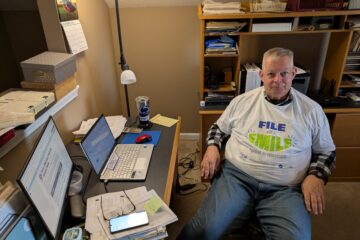A child is removed from their home and placed into foster care every two minutes.
Last year, 251,359 entered foster care in America. These children spend an average of almost 20 months in foster care, and a shocking 14 percent spend more than three years in the system.
My husband and I been foster parents for almost 10 years, and we’ve seen placements between seven months and 42 months (approaching four years). No matter how great we try to make it, no matter how much love and care we pour out, no matter how many parent visits get scheduled… kids in foster care lack permanency. They aren’t experiencing a stable life situation that is long-lasting, without the threat of significant change or upheaval. It’s a constant anxiety hanging over their heads and burdening their hearts.
Last year, only 47 percent of children exiting foster care were reunified with their families, the lowest percentage ever recorded. The pandemic has made it even harder for families to bring about positive change. At the same time, the number of children aging out of foster care jumped by more than 14 percent in 2019, with 20,445 youth reaching adulthood without a permanent family. These are teens entering the world in the aftermath of the pandemic without a stable support system and likely with years of trauma or neglect in their history.
If everyone cared, foster families would be available for more children, and fewer kids in care would be placed in congregate care settings (group homes). Up to 27 percent of children are placed into congregate care in certain states. Congregate care is meant to be temporary for children who would benefit from mental or behavioral health treatment, but—due to the lack of available foster homes—children are often inappropriately placed in these settings without a clinical need or are held long after their clinical needs are met.
If everyone cared, adoptions from foster care would be more common. Although the highest number of children ever recorded (64,415 children) were adopted out of the child welfare system, 122,216 children are still waiting to be adopted from the foster care system. Not only are these adoptions free, they often come with benefits to ensure finances aren’t a barrier to families who would be open to these adoptable kids.
If everyone cared, families providing kinship care to relatives’ children would have active, engaged community and church support. Although more than 2.6 million children live in households headed by grandparents or other relatives (without their parents present), only 133,000 of them are in kinship foster care—meaning the remainder of these kinship caregivers are outside of the child welfare system with little or no government support.
If it took you two minutes to read this article, another child has entered the foster care system. You can make a difference by caring today.
Stats from Children’s Defense 2021 State of America’s Children Report.
Kelley Rose Waller and her husband are Pennsylvania foster parents. She is the author of three novels, The Senator’s Youngest Daughter (2016), Going Back Cold (2019), and the forthcoming Countershade (2022). Kelley is Vice President of a marketing firm. Her goal is to live, work, and write to glorify the name of Jesus Christ. www.kelleyrosewaller.com













